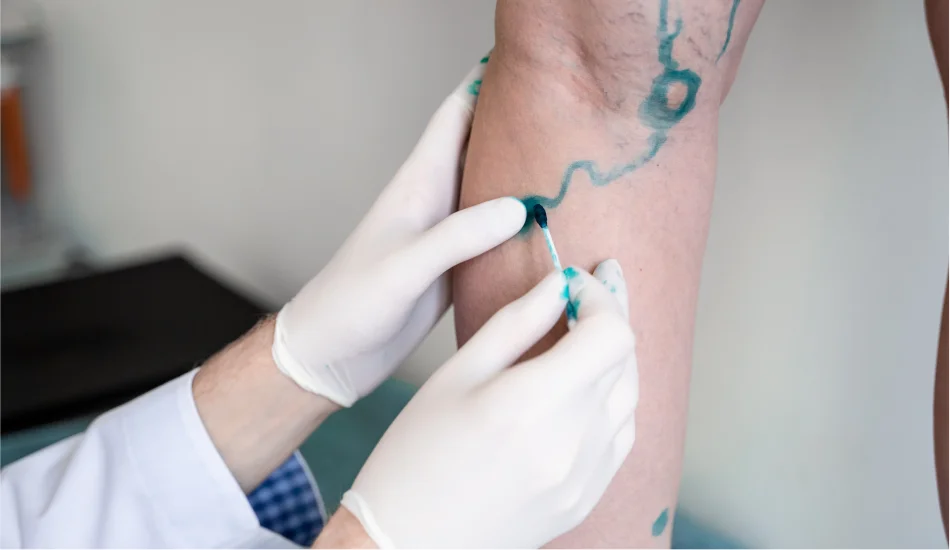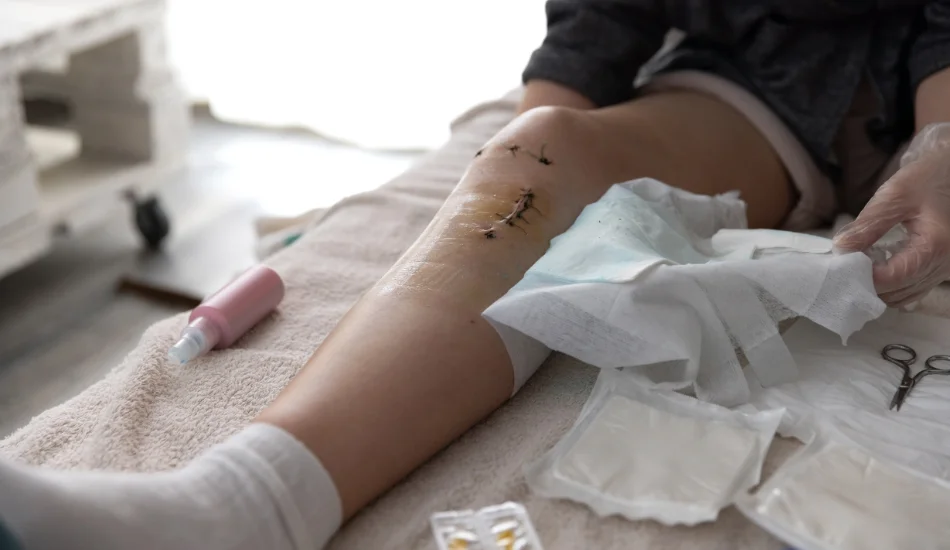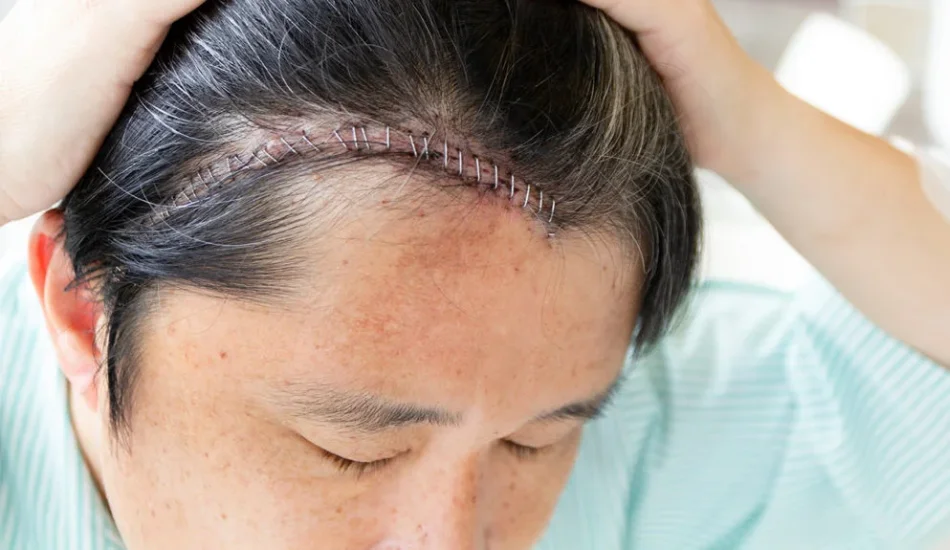
Vascular and endovascular surgeries are specialist fields that target problems that affect blood vessels, which include veins, arteries as well as lymphatic system. In Chirayu Super Speciality Hospital our highly skilled group of surgeons for vascular issues employs the most advanced techniques and technology to provide complete medical care for patients suffering from blood vessel issues. This blog examines the differences between endovascular and vascular surgery and what conditions these procedures treat and the advantages of these procedures.
Understanding Vascular and Endovascular Surgery
Vascular surgery is a type of open surgery that uses traditional techniques for treating diseases of the blood vessels. The procedure typically involves making incisions that allow for access to and repair of the blood vessels in direct.
Endovascular procedure is, on the contrary is a minimally-invasive procedure that utilizes catheter-based methods to treat vascular disorders inside blood vessels. The procedure typically involves tiny incisions or punctures that allow to speed up recovery and reduce risk of complications compared to open surgery.
Conditions Treated by Vascular and Endovascular Surgery
In Chirayu Super Speciality Hospital, our endovascular and vascular surgeons are experienced in treating a range of ailments, including:
- Aneurysms :-
- Aortic Aneurysms :- They occur when a portion of the aorta, which is the largest artery in the body, gets larger and weaker. Vascular and Endovascular Surgery and open repair options, like endovascular aneurysm repairs (EVAR) are available to treat aortic and vascular aneurysms.
- Peripheral Aneurysms :- Aneurysms may also develop in arteries that are not as well-known like those found within the leg (popliteal aneurysms). Treatment can involve bypass surgery or endovascular procedures to avoid rupture.
- Peripheral Artery Disease (PAD) :-
- PAD is a disorder characterized by narrowed arteries, usually on the lower legs which reduces blood flow and causing pain when walking. The treatment options are angioplasty the stenting procedure, and bypass surgery to improve blood flow.
- Carotid Artery Disease :-
- Carotid arteries carry cerebral blood. The narrowing or blockage of these arteries increase the risk of suffering from stroke. Surgery procedures such as carotid endarterectomy, or carotid arterial the stenting procedure can help in preventing strokes by restoring the proper blood flow.
- Varicose Veins :-
- Varicose veins are swelling, stretched veins that appear just below the skin’s surface, typically located in the legs. The treatment options are sclerotherapy, laser therapy, and less surgical vein removal.
- Deep Vein Thrombosis (DVT) and Pulmonary Embolism :-
- DVT is when blood clots begin to form inside the deeper veins. Typically, they are within the leg. If a clot is broken and travels into the lungs, creating an embolism in the pulmonary tract. Treatment could include anticoagulation therapy or catheter-directed thrombolysis in order to dissolve the clots.
- Renal and Mesenteric Artery Disease :-
- The narrowing of arteries that carry blood to kidneys and the intestines could cause complications. Treatment options include angioplasty an operation to stentify, or bypass surgery to increase the flow of blood.
- Dialysis Access :-
- Dialysis patients need constant connection to the bloodstream. Vascular surgeons make arteriovenous (AV) fistulas and grafts to allow long-term dialysis access.
- Lymphedema :-
- Lymphedema can be described by swelling caused due to the accumulation of lymphatic fluid. Surgical procedures seek to increase lymphatic drainage and decrease swelling.
Benefits of Vascular and Endovascular Surgery
Endovascular and Vascular Surgery offers numerous advantages, which include:
- Minimally Invasive Options :-
- Vascular and endovascular surgery is less invasive alternatives to traditional open surgeries, which results in fewer incisions, less suffering, and shorter healing times.
- Reduced Complications :-
- Minimally-invasive procedures have been associated with a lower chance of bleeding, infection and other issues, increasing the safety of patients.
- Faster Recovery :-
- Patients who undergo endovascular procedures typically have shorter hospital stays and quicker return to regular activities than those who undergo open surgery.
- Improved Outcomes :-
- The advancements in the field of technology and surgical procedures have resulted in better outcomes for patients suffering from cardiovascular conditions, which has reduced the chance of complications and increasing the health.
- Comprehensive Care :-
- In Chirayu Super Speciality Hospital, our multidisciplinary team is able to provide complete care, starting from diagnosis and treatment all the way to rehabilitation and follow-up. We make sure that our patients receive holistic and personalized treatment.
The Vascular and Endovascular Surgery Process
- Diagnosis and Evaluation :-
- Patients undergo extensive diagnostic tests which include imaging tests like ultrasonography, CT scans, and angiograms, which are used to determine the severity and extent of vascular diseases.
- Treatment Planning :-
- Our expert team creates individual treatment plans that are based on the patient’s medical background and general health. Treatment options include medications lifestyle changes, medication, or surgery.
- Surgical Procedure :-
- Vascular surgery :- It involves open surgery methods for repairing or replacing injured blood vessels typically needing a longer time to recover.
- Endovascular Surgery :- Uses balloons, catheters and stents that are inserted through small punctures or incisions to treat Vascular and Endovascular Surgery issues with minimal damage to the tissues surrounding.
- Postoperative Care :-
- Patients receive a comprehensive postoperative treatment that includes treatment of the wound, pain management and physical therapy to aid in recovery and maximize outcomes.
- Follow-Up and Rehabilitation :-
- Regular follow-up visits monitor the patient’s progress and guarantee the long-term health of the patient. Rehabilitation programs are focused on enhancing the strength and mobility of patients as well as their overall wellbeing.
Conclusion
Endovascular and vascular surgery are crucial fields that tackle many different issues that affect blood vessels. In Chirayu Super Speciality Hospital Our group of surgeons for Vascular and Endovascular Surgery are dedicated to providing the most advanced and compassionate treatment to patients suffering from vascular diseases. Through combining experience and the latest technology, we can offer an extensive array of therapies that focus on patient safety and wellbeing.
If you or someone close to you has signs of vascular disease, or requires special care call Chirayu Super Speciality Hospital today to arrange a visit. Our knowledgeable team is available to assist you in every step of your journey to treatment and ensure you get the best outcomes for your cardiovascular health.



